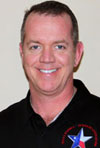Resume Tips
According to hiring expert, Dan Lawton, “Your resume is an employer’s first impression of you, so it’s important to make it a positive one.”
Many job seekers spend countless hours perusing classified ads, but do not dedicate nearly enough attention to the creation of a polished, articulate resume. Whether you’re a recent college graduate looking for an entry-level position or a corporate executive seeking a different managerial position, it’s imperative that your resume emphasize and sell your strengths and experience to the fullest degree possible.
Always review your resume meticulously for spelling or grammar errors. Remember, this is your only chance to make a first impression upon a potential employer, so make the most of it.
Resume Length
Shorter is better. One page is ideal. Two is acceptable. Especially if your past employment references are not extensive. Please do not feel the need to list every part-time job you’ve had since the age of 15. In fact, your resume gains more value when you list only the work experiences or skills that have relevance to the career opportunity for which you are applying.
Necessary Resume Components
Always include your name, address and home and work number at the top of the page. Next, state your objective (if needed), followed by your employment history. Employment history should be listed in reverse chronological order. In this section, include your dates of employment, the title of your position, a brief description of your job duties and the name and contact information of your supervisor.
Education should be listed last, without grade point average (GPA).
Personal Data
Generally, personal information should be kept personal.
We do not recommend that you disclose your disability on your resume, unless you think it will help you to attain your desired position.
If you have a military record, be sure to include the relevant job training or experiences that you gained during your service.
The Objective
Many job seekers place an objective at the beginning of their resumes. If your objective supports your accomplishments and demonstrated skills, it will add value to your resume. However, if it’s too specific, it may unnecessarily restrict your job search.
Sell Your Experience
Use bullet points and action verbs such as “achieved,” “established” and “organized” to describe your former job duties. Emphasize any promotions that you received and other quantifiable achievements, such as, “Increased factory output by 35 percent.”
Avoid exaggerations of past work experiences. This is dishonest and may lead to your dismissal in the future.
Omit
Please omit the following information from your resume. If necessary, a hiring manager will discuss these points with you during your interview:
- Reasons for leaving a job
- Former or desired salary
- Hobbies and memberships
- Any potentially negative information!
Do not utilize unorthodox tactics on your resume. Sure, you’re a creative person, but a resume is the wrong medium through which to display your flair for the avant-garde.
Refrain from using colored paper, elaborate fonts or unconventional formats. Restrict your language to strong and necessary verbage. Elaborate or overly embellished language will not win over recruiters or hiring mangers.





